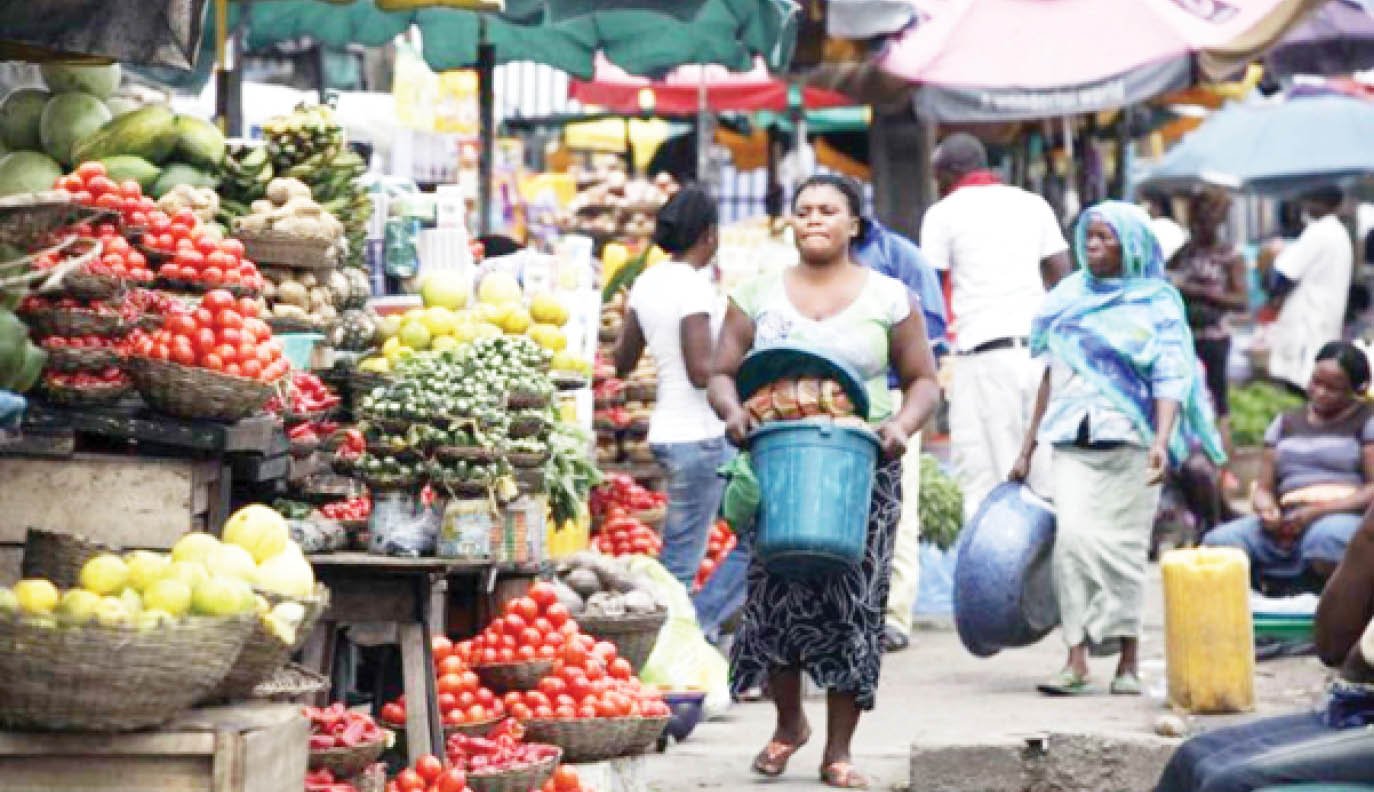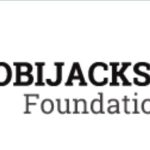The failure of the Nigerian National Petroleum Company Limited (NNPC) to make remittances into the federation account since February has significantly impacted the available resources to most states in Nigeria. In a bid to improve revenue, state governors are introducing new measures to tax the people. However, Prof. Charles Soludo is being criticised for allegedly taxing the poor in Anambra state.
Residents of Anambra State have continued to lament over the tax regime of Governor Charles Soludo, which appears to affect mostly.
In the state, taxes are imposed on market men and women, bus drivers, tricycle operators, wheelbarrow pushers, shop owners and hawkers, and even mourners.
Professor Soludo had on June 30 announced the introduction of a new tax regime in Anambra, noting that the new order would cancel all revenue collections through proxy and bring sanity in the system.
Disclosing this during a town hall meeting with transport and market union executives in the state, the governor said the new system, which commenced on July 1, would provide digital identity for all state taxes and levies paid, and commercial vehicle operators who make daily payments would not be required to pay again in any public park.
He said the affected unions would receive 5 per cent of earnings to run their separate business locations.
He also ordered that caretaker committee members in Anambra markets be prohibited from collecting money on behalf of the government, noting that moving forward, public parks owned by the government shall be directly handled by it, while private parks are not affected.
The governor said the new tax regime would bring about sanity and accountability in the system, while helping him to achieve his dreams for the development of the state.
Soludo alleged that the Nigerian National Petroleum Company (NNPC) Limited had not remitted any money to the federation account since February 2022, and as such, the state must devise a means to sustain its plans.
He said the state government introduced what was considered a minimal levy for tricycle operators (Keke), shuttle buses and others, explaining that they would eventually become beneficiaries.
He said the state government, after a careful thought, asked tricycle riders to start paying N15,000 each on a monthly basis, which equals N600 daily for 25 days. He noted that 5 per cent of the sum would still go to their union for the month.
Operators of shuttle buses were also asked to pay N25,000 monthly, while commercial motorcycle operators would pay N300 daily, which amounts to N7,500 monthly, N21,000, with a discount of N1,500 for one quarter, or N40,500, with a discount of N4,500 for half a year.
“Keke riders would be paying N600 daily at the cost of N15,000 monthly or N42,000 with a discount of N3,000 for one quarter or N81, 000 with a discount of N9,000 for half a year.
“Similarly, daily payment for shuttle/buses is N1,000 at the rate of N25,000 monthly or N70,000 with a discount of N5, 000 for one quarter or N135,000 with a discount of N15, 000 for half a year. For taxi drivers, the daily rate is N700 or N17,500 for one month. They have the option of paying N49,000 quarterly with a discount of N3,500 and N94,500 with a discount of N11, 000 for half a year.
“The rate of N1,200 daily is for township bus operators at the cost of N30,000 for one month, N84,000 with a discount of N6,000 for one quarter and N162,000 with a discount of N18,000 for half a year. Pick-up vans daily fee is N1,000 at the cost of N25,000 for one month, N70,000 with a discount of N5,000 for one quarter and N135,000 with a discount of N15,000 for half a year. All these are applicable in all government-owned parks in the state,” he said.
He also said that part of the proceeds of the tax would be used for the management of different government approved parks and building of roads, provision of affordable health care system, education and other social infrastructural projects in the state.
He said it was on record that before now, the operators paid more than the amount they were being asked to pay, and in most cases, the money would end up in private pockets, thereby making revenues accruable to the government very low.
The chief press secretary to the governor, Mr Christian Aburime, argued that the state government had suffered leakages and a largely unaccountable system of tax remittances. He said the resultant effect was the inability of the state to generate enough revenue to undertake capital projects that would impact positively on the lives of the people.
He added that the leakages were part of what Governor Soludo is tirelessly working to plug so as to eliminate touting across Anambra State.
“The era of multiple levies, indiscriminate collection of state revenue, roadblocks and personal enrichment by many parties/vested interests has come to an end.
“The state government, in all sincerity, cannot continue to allow touts and illegal revenue collectors to continue ripping the state off.
“Governor Soludo wants the best for the people of the state. It is, therefore, incumbent on Ndi Anambra to give his government full support and cooperation in the march to building a prosperous state.
“Operators in the Anambra transport sector should avoid making payments to individuals. Anambra State revenues can only be paid to banks and their designated agents. And they should insist on issuance of receipts,” he said.
Worried by the new tax regime, tricycle riders protested and blocked major roads, grounding economic activities in the state.
Members of the group carried placards and complained bitterly against the high tax rate by the state government, which they described as harsh and outrageous.
One of the protesters, Chuks Madu, said they had written several letters to the state government to save them from the extortion from touts, but instead of responding favourably, they imposed heavy taxes on them.
Another rider, Pius Uba, lamented that the country was already hard and the governor is trying to create additional hardship for them.
He said, “Most of us are graduates managing our lives because there is no job. Some of us are driving Keke on hire-purchase basis, so if the tax is sustained, many riders may not be able to meet up with payment.”
Following the withdrawal of their services as part of the protest, commuters were forced to trek long distances to their respective destinations.
But few days later, another group of tricycle operators declared support for Soludo on the new tax regime.
The leader of the Tricycle Operators of Nigeria (TOAN), Awka zone, Prince Collins Ozojiofor, said they were solidly behind the governor and they were not part of those he called hired impostors.

He said they were happy that the state government was intervening to save them from touts, who had extorted money from them over the years.
“We hope the new tax regime would stop the harassment and illegal tax collection in the state,” he remarked.
The protesting tricycle operators accused their leadership of working with the state government to impose tax on them without exhausting negotiations and reaching agreement. They accused government of being insensitivities to the present hardship and other economic realities in the country.
New levies were also introduced in markets in Awka. It is N4,800 for stalls in Eke Awka; N2,400 for market development; traders’ fee, N3,000; pollution/sanitation fee, N2,000 and biometric market registration, N700.
One of the traders at the market, Chidi Uba, said the government did not consider their plight before imposing levies on them.
He said the government should have addressed some of the challenges in the market before coming up with its tax regime.
Another trader, Mr Kene Obunna, said it was sad that the government was forcing people to pay revenues without correspondent facilities in the market.
It was also gathered that wheelbarrow pushers are to pay N5,000 every month.
Meanwhile, some analysts have faulted the new tax regime in the state, saying it would mostly affect the poor, who need assistance.
A public affairs analyst, Mr Patrick Chijioke, said the governor ought to have started with the rich, who earn much and pay less or nothing to the state. He said the levies were outrageous and anti-masses.
But the convener of Recover Nigeria Project, Comrade Osita Obi, said he was in support of the new tax regime in the state.
“I am one of those who believe that everybody – the poor and rich – must pay taxes according to their earnings. We must support the tax regime to develop the state,” he said, adding that developed countries like Britain use taxes to run their affairs effectively.
He, however, urged citizens to demand accountability from the government in the management of the resources.
After the protest by tricycle operators, which almost paralysed economic activities in the state, officials of the state government and the leadership of the TOAN met in Awka to fine-tune strategies for payment.
Governor Soludo, through his special adviser on internally generated revenue, Isaac Okoro, during the meeting, promised effective security and safety for tricycle operators. He assured them of plans to construct and repair all the deplorable link and major roads across the state.
Okoro also said the governor had embarked on key reforms to change the past narrative of multiple taxation, warning that the present government would not tolerate any form of distraction and civil disobedience.
He said, “The only way they can support the government is to reason together in resolving some of the issues. We are trying to come up with a system that would ensure workable payment plans that would make life meaningful.
“The operators should reciprocate the gesture of the state government in issuing operational documents to the leadership of tricycle operators in order to ensure law and order. Whatever is worth doing is worth doing well. Don’t fall victim of violation of established law and order.”
Few days after the meeting, Soludo banned tricycle and shuttle bus unions from operating in the state.
According to a statement by the commissioner for information in the state, Sir Paul Nwosu, those operating as tricycle union are responsible for the breakdown of law and order in the state.
“In order to forestall a breakdown of law and order, government hereby suspends all tricycle and shuttle bus unions in the state with immediate effect for six months pending further investigations and a possible harmonisation of the unions, which shall have a leadership known to and recognised by the state Government,” part of the statement reads.
As a follow-up to the recent consultation with representatives of tricycle and shuttle bus operators, the state government considered their plea and decided to offer them a convenient payment option and other benefits that could add value to their well-being.
Consequently, tricycle operators now have the option of paying N4,000 weekly or N15,000 monthly. However, in the eight local government areas affected by the curfew, they will pay N3,000 weekly or N12,000 monthly. They will revert to the normal rates of N4,000 weekly or N15,000 monthly as soon as the curfew is lifted.
Shuttle bus operators will pay N5,000 weekly or N20,000 monthly. But because of the strike by the Academic Staff of Universities (ASUU) that resulted in the closure of universities, National Association of Nigerian Students (NANS) shuttle buses will pay N2,500 weekly or N10,000 monthly. This group will also revert to the normal rates of N5,000 weekly or N20,000 monthly as soon as the strike is called off. Taxis will pay N4,375 weekly or N17,500 monthly. Township buses will pay N5, 000 weekly or N20,000 monthly. Mini trucks and pick-ups will pay N5,000 weekly or N20,000 monthly respectively, while intra-state buses will pay N6,250 weekly or N25,000 monthly.
Loading and offloading in government (public) parks will now be free. Moving forward, every compliant commercial vehicle driver will get a free health insurance cover that would enable him have access to basic health and emergency services in any Anambra State-owned hospital.
Reacting, a resident, Mr Tony Uche, said the government should try to review the tax system and ensure that governance has a human face.
He said if the operators decide to increase fares, civil servants and other residents would pay more.
“Again, the roads are too bad and everyone is suffering the hard economic situation in the country. The prices of foodstuff and every other thing across the country are high and life is tough,” he said.
A tricycle rider who simply gave his name as Godwin said, “The monthly tax of N15,000 on each operator is too much and not everyone can afford to pay it. We have our individual responsibilities and challenges. For example, majority of our members are on hire-purchase schedule of N25,000 per month and above. This is aside weekly maintenances, payment of house rents, school fees, high cost of petrol, electricity bills and other domestic problems.”
He urged the state government to reason with the operators by scaling down the new tax to at least N5,000 or N10,000 at most so that they can conveniently pay and be able to take care of their families and other personal responsibilities.
Also, Micheal Ofodile, said the burden of payment of the stipulated revenue would be heavy on them due to other personal challenges. He said they were hoping for further negotiations with a view to scaling down the tax in order to better their lots.
Another resident, Uche Micheal, wondered why the government would task the poor as much as N15,000 every month instead of ameliorating their suffering.
He said, “It is sad that instead of empowering these people by giving them soft loans to buy tricycles, Soludo is taxing them heavily. If the state is broke, is it the poor that would provide the needed resources to fix the economy?”
A tricycle operator, Obiora Chikelue, said some of them may be forced to leave the state if the government succeeds in forcing them to pay the tax. He said government should not calculate how much they make without considering their challenges.
Also, Cyril Orjiako, another tricycle operator, said he was not against paying tax, but it must have a human face. He wondered why the government wants the poor to raise money to run the government.
Uche John also said, “We did not say we are not paying tax, but the amount is too much for us. You have to consider that most tricycles were bought on hire- purchase and we are still paying for them.”
More so, Mr Alloy Ede, a businessman, described the state government’s tax policy as ‘insensitive’.
He said that when the governor was campaigning he said he had foreign and local friends to help build the state, but he is now taxing the poor without considering their plight in the present economic situation.
“The state government needs to be sensitive because the economy is not favourable to anyone. Everybody is struggling to feed his family and not to feed the government with high taxation.” he said.
Burial posters
Soludo also announced recently that families would pay before pasting posters to announce the burial of their late loved ones.
This announcement was contained in a letter by the managing director/chief executive officer of the Anambra State Signage and Advertisement Agency, Mr Tony Odili Ujubuon͂u.
The letter stated that a tax of N100,000 would be paid to display burial banners across the state. There are varying amounts for posters and other sizes of banners.
The letter, who was addressed to the national chairman of the Anambra State Association of Town Unions (ASATU) reads, “The tariff below serves as a guide to what is payable. Sizes, description, amount and duration of the taxes are: 4 X 6FT N5,000 for two weeks; 8 X 10FT N20,000 for 2 weeks; above 10FT square are N100,000 monthly; and N5000 for posters for two weeks.
“Note that directional signs leading to the venue, which can come in 1x 2ft size, will not be charged. It is also important to bear in mind that after the duration of this period, any such board that is left standing will attract a penalty in the sum of the amount initially paid. This penalty is paid weekly.
“The agency, in fulfillment of its statutory obligation, is not unmindful of the menace associated with non-commercial adverts that have literally occupied our out-of-home space. These adverts come in the form of obituary, religious, wedding and sundry flex, banners and posters.”
The agency said the reason for this was to curb the level at which people deface the environment, which has become a threat to the aesthetics of communities in the state.
It stated it would work with town unions to collect payment and enforce it, adding that Soludo had the resolve of making Anambra a liveable city.
The agency stated that communities, villages, hamlets, kindreds, churches and town unions would be alerted of the latest development.
Addressing the national chairman of the ASATU in the letter, Ujubuonu stated: “We have written to you because we have always regarded you as progress partners in the development of Anambra State.”

 Join Daily Trust WhatsApp Community For Quick Access To News and Happenings Around You.
Join Daily Trust WhatsApp Community For Quick Access To News and Happenings Around You.


